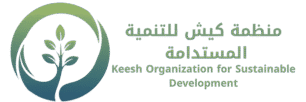Water Management for Achieving Sustainable Development in Iraq: The Vision of KEESH Organization for Sustainable Development
Introduction
Water is the lifeblood and a key driver of development in any country. For decades, Iraq has faced a severe water crisis that negatively impacts its economic, social, and environmental sectors. KEESH Organization for Sustainable Development seeks to propose scientific and strategic solutions for managing water resources, enhancing the resilience of local communities, and ensuring a more inclusive and sustainable future.
1. The Water Crisis in Iraq
Iraq is experiencing a rapid loss of surface water at a rate of 8–12 million cubic meters annually, with a sharp decline in marshland areas by 78% since 1973, exacerbating tensions between agricultural, urban, and industrial water uses.
Climate change intensifies the crisis, as rising temperatures and declining rainfall worsen water scarcity, threatening the food and health security of millions and impacting biodiversity in the Tigris and Euphrates river basins.
2. Mitigation and Resource Management Initiatives
The United Nations and the United Nations Development Programme (UNDP) are working with the Iraqi government to improve water resource management by adopting an integrated water management approach that builds the capacity of government institutions and emphasizes local community involvement.
As part of international efforts, a UNICEF report indicates that around 60% of children lack access to safely managed water services, highlighting the urgent need to improve water and sanitation infrastructure in schools and homes.
3. Innovative Technologies and Solutions
**Solar-Powered Desalination:** With the decreasing cost of solar energy, it is now possible to establish river water desalination plants using solar panels, reducing reliance on fossil fuels and ensuring a steady water supply for agriculture and remote areas. **Hydroponics:** UNDP has launched a program in the Sharqat area to train farmers in hydroponic farming systems, which consume 70% less water than traditional agriculture while increasing productivity and crop quality. **Green Hydrogen and Water Reuse:** Iraq is exploring the development of green hydrogen from associated gas and using low-emission technologies to treat agricultural wastewater and recycle it for use in agriculture and industry.
4. The Role of KEESH Organization for Sustainable Development
Awareness and Capacity Building: Organizing workshops and seminars in collaboration with local authorities to educate policymakers and farmers on the importance of sustainable water management and best technical practices. Technical and Financial Partnerships: Negotiating with local and international donors to secure funding for renewable energy-powered water desalination projects and supporting the establishment of model hydroponic farms in the western governorates. Monitoring and Field Research: Conducting regular field studies to track water levels and quality in the Tigris and Euphrates basins, and publishing transparent reports to enhance accountability and guide future policies. Community Engagement: Launching media campaigns through social media and local radio to encourage water conservation and protect clean water sources.
Conclusion
Water is the cornerstone for achieving comprehensive development in Iraq. By integrating innovative technologies with sound management policies and empowering local communities, Iraq can progress toward a more sustainable and secure future. KEESH Organization for Sustainable Development will remain a strategic partner in this journey, committed to enhancing water management and preserving this vital resource for future generations.




